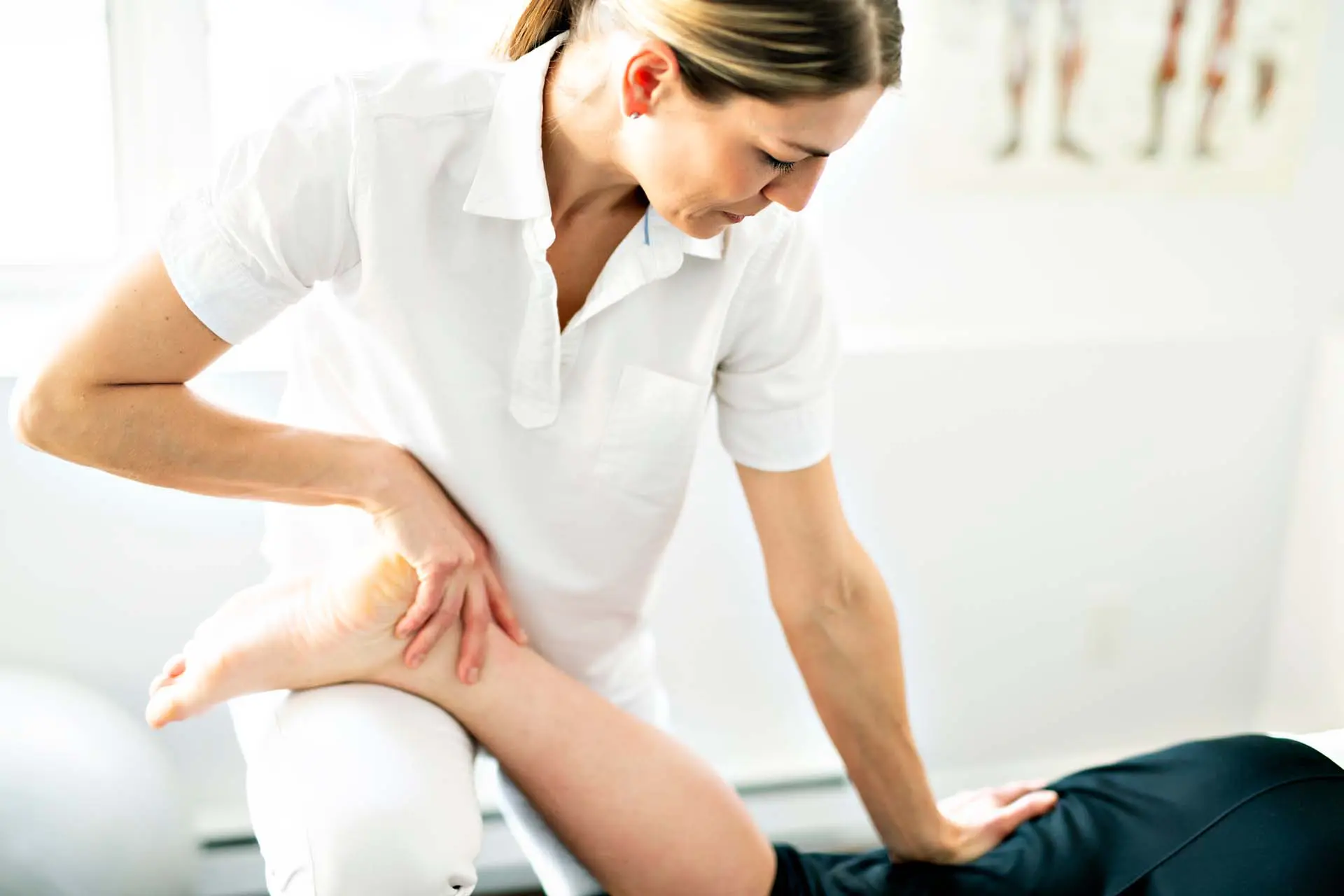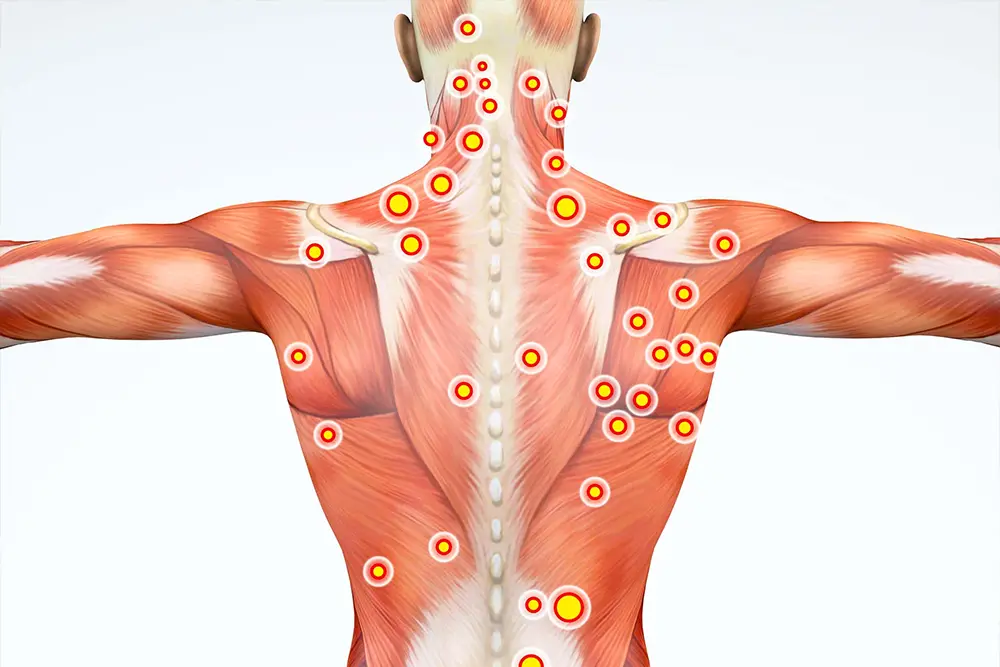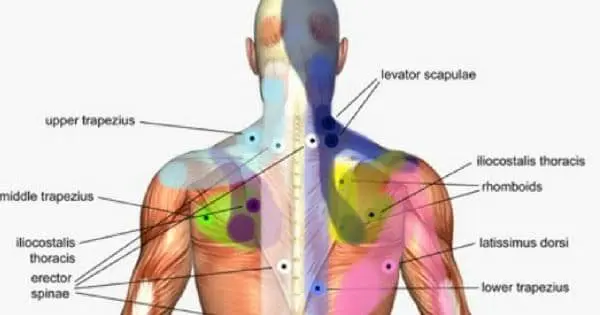Sports Massage Brisbane – What is Sports Massage?
Sports massage is traditionally a term used for massage either pre or post workout or event, but it has come to be used as a term by active people for a massage that addresses tension, pain, knots, doms, injury rehab as well as event preparation and recovery.
Sports massage draws from Remedial, Deep Tissue and other techniques such as Dry Needling, Laser and Corrective exercise. At Knead our sports massage therapists have a minimum Diploma of Remedial massage and many have additional training such as Dry needling, cupping, Neuro Kinetic therapy, sports taping. Our Myotherapists can provide sports massage for sciatica, frozen shoulder, common running injuries like shin splints, nerve and joint mobility and any tendinopathies. Myotherapists can also assess movement patterns, muscle weakness and hypertension and provide a corrective exercise plan to help you get the most out of your training.

Sports Massage therapy – What are the benefits of Sports Massage?
- Flush metabolic waste & increase circulation
- Breakdown scar tissue and fibrous areas
- Lengthen fibres & release trigger points
- Increase nutrient delivery to muscles increasing recovery time
- General maintenance
- Decrease pain and tension
- Improve mobility
- Event prep or recovery
- Injury management including tendonitis

What techniques may be used?
- Trigger Point therapy
- Deep Tissue massage
- Dry Needling or electrotherapy
- Stretching
- Cupping
- Laser
- Corrective exercise

What to Expect in a Sports Massage Brisbane Treatment
Your sports massage therapist will discuss your issues, provide assesment and feedback on what they find and treat accordingly. It’s best to wear loose clothing if possible so the assessment process is easier. Shorts and t-shirt are good or active wear that you can move in. Your therapist may be assessing movement before and after treatment, and getting you to change positions within the treatment.
Once goals are established and assessment performed, your therapist will discuss treatment options for you and if your situation requires some ongoing treatment they will formulate a treatment plan. Your sports massage therapist will always follow up with you to see how effective the treatment was and provide additonal resources such as exercise videos, much of which is on our youtube channel.
Sports Massage Brisbane Reviews
Read some of our client reviews.
I have been visiting Knead Massage for many years now and cannot recommend their service enough. Gregor is a fantastic remedial massage therapist who has been able to remedy many of my aches and pains resulting from sport; particularly tight calf muscles, lower back and hip issues. I highly recommend booking an appointment with Gregor!
– Kat D.
I visited Knead for a remedial massage treatment on my neck, back and shoulders. My remedial therapist was Gregor. Gregor is fantastic at listening to the client and for those who need a firm massage he is the best. I left my first appointment feeling rejuvenated and booked in a second time. Gregor also makes suggestions as to stretches I can do after sport to manage my body better. Thank you, Gregor!
– Alex H.
I have gotten numerous massages from around the world, and I can confidently say that I haven’t seen someone as knowledgeable, effective and passionate in this profession as Roger. Coming out of the session, I had felt significant difference in tension and pain relief in the areas and increased flexibility and mobility. I’ll definitely be back to help with my sport recoveries.
– Saeb A.
On a Saturday morning, after a whole week of stress and traveling, I decided I deserved a nice massage session. It was then very easy for me to book (online, this was a great plus) a 60 min. Sport massage at Knead. It was just the best decision I could take! My muscles felt immediately better after the treatment! I am from Italy but I will certainly go at Knead again if my business will bring me to business in the future.
– Fabio F.
Sports Massage Pricing
| Massage | 30 mins |
45 mins |
60 mins |
90 mins |
|---|---|---|---|---|
| SNR – ADV Therapist (Roger, Wang & Elena) | $75 | $95 | $110 | $165 |
|
Remedial Therapist (Gregor, Anna, & Makira) |
$65 | $85 | $99 | $149 |
Meet The Team
FAQ
Trigger points are areas within muscle tissue that have become contracted and banded together. As the chart above demonstrates Trigger Points are either Active or Latent. Active points can radiate pain to other areas of the body, even areas that are not directly aligned with the trigger point. They can also stimulate the release of sensitizing chemicals into muscle increasing pain. If you have active trigger points in the neck, for example you may experience headaches.
Latent means they are present but don’t cause pain, however they will cause tension, lack of mobility and weakness in the muscle.

Pressure is applied to the TP and we use a pain scale to assess discomfort where 1 is the lowest and 10 the highest. We won’t go above a 7 out of 10 for discomfort. The point is held until it drops to a 2-3 out of 10. Often a pulsing will be felt by the therapist or we feel the tissue relaxing under pressure. Sometimes a TP may not release or only partially, often because there is another close by. It may also mean the tissue needs some other type of technique such as cross fibre or Dry Needling. Dry Needling is the insertion of fine filament needle into the point in order to stimulate the pulse response. Therapists use this when the TP is particularly difficult, where the client may be larger and the tissue harder to work with or when muscle is extremely contracted. Only trained therapists use this method.
It is not exactly known why they occur however Poor posture especially whilst working at the computer or studying and holding positions where some muscles are overworked whilst others are under utilised is thought to be a major factor. As women are more prone than men to develop tp it is thought that hormones can play a part. There is also research into the mineral balance and the way cells produce and store ionized calcium. Whatever the reasons the good news is that massage is a very effective treatment for Trigger Points and can quickly ease pain and increase range of motion.
Cross fibre: is the manual manipulation of tissue across the direction of the fibres. The point is to spread fibres apart, break down scar tissue and adhesions and reduce the stickiness of fascia allowing muscles and tendons to glide past each other more easily.
Stretching: once trigger points have been released, general muscle tension decreased and blood flow increased stretching helps to lock in the changes in the tissue. It increases the mobility of the fibres and helps to change the muscle memory that develops when muscles are contracted for a long period of time or held in the same position or not used properly over time. It is also a good opportunity for us to educate our clients in treatment on the kind of stretches that will benefit them after treatment.
We will provide a stretching routine for your issue or at home exercises or both should you want these. We also recommend to increase your water intake, avoid alcohol for the rest of the day and have an epsom salt bath after treatment to fully enhance the treatment received.
